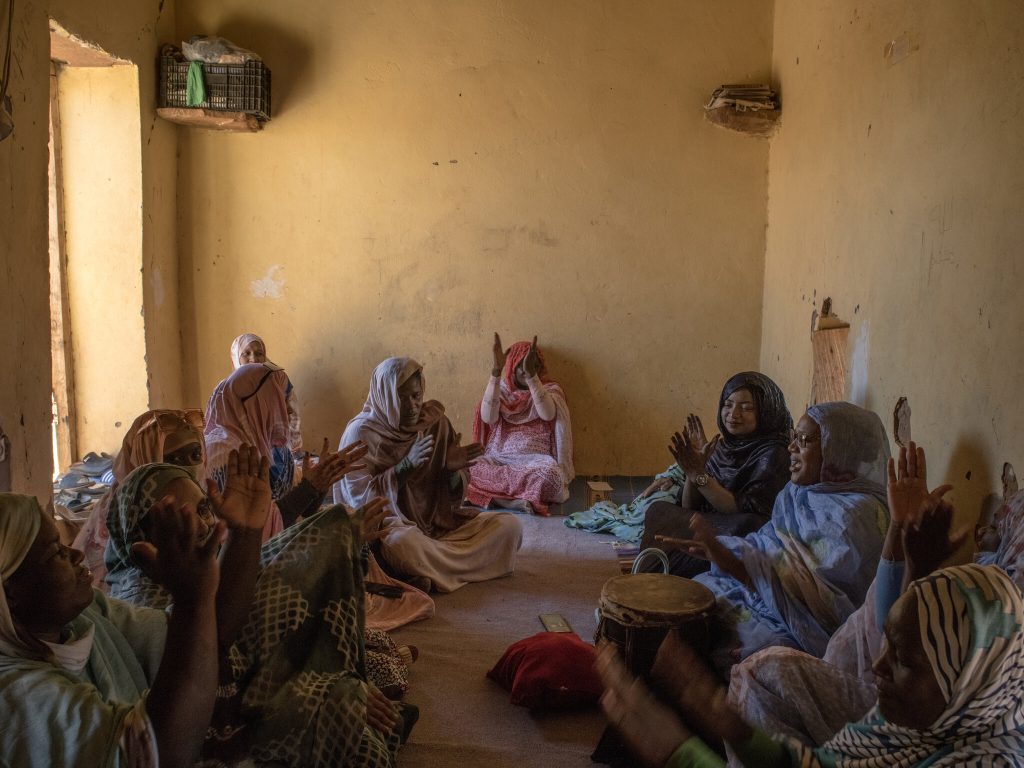According to data compiled by the National College of Notaries, in the first quarter of 2023, in Colombia, 2,133 couples have divorced, which means that, on average, 28 couples divorce every day and 1 every hour.
And although divorce is usually seen as a painful and stigmatizing decision, in a country far, far away, called Mauritania, in northwest Africa, it has not only become a very normal situation, but a cause for celebration.

This celebration arises from this culture with matriarchal tendencies, where divorce is common, so it is not weird for some to have been married 5, 10 and even 20 times.
And although the intention is not to get married to get divorced immediately, the point is that when they do it is easier to continue with their lives unlike other cultures. Of course, this new beginning is celebrated with a big party where the new status of ‘divorced woman’ is announced.
Nejwa El Kettab, a Mauritanian sociologist who studies women’s society in her country, explains how this custom arises: “The Maure community inherited strong matriarchal tendencies from their Berber ancestors, and although 100 percent of the population professes Islam, women in Mauritania are quite free to divorce, as even this qualifies them as experienced and therefore desirable”.
In some circumstances, in Mauritania, they allow women to initiate divorce legally, not only verbally. On the other hand, some men also do so, but women’s insistence usually prevails.
Regarding child custody, after divorce, women have priority over men. However, although it is legally established that men are responsible for paying child support as soon as the law is enforced, it is common for women to be the ones to support their children financially.
Some Mauritanian women report that by ending their relationship they were able to achieve their goals. Like Salka Bilale, who is celebrating her daughter Iselekhe Jeilaniy being single, but she had to go through a lot of hardship.
Bilale found out that her husband was cheating on her and, therefore, she refused to go back to him and immediately stopped giving him money for the support of their five children. But she was not deterred by the situation and opened a store with which she was able to not only support her children, but also to continue her pharmaceutical studies.
Today her aspirations go beyond that; she wants to become the first woman deputy of Uadane, a 900-year-old ruined city, situated on top of a hill, with houses made of stones.
Like Salka, other women have expressed that after their divorce they feel a freedom they never imagined before. One of the reasons why many women do not continue with their marriages is due to the ancient practice of parents choosing the future husband without the consent of the fiancée and without her knowledge.
It is very common for parents to marry off their daughters when they are young, mostly before the age of 18, and deny them the possibility of choosing not only their partner but their future.

Elhadj Ould Brahim, professor of cultural anthropology at the University of Nouakchott, says: “There is so much poetry about the seduction of divorced women in Mauritania that contrasts drastically with the Muslim world, even with its closest neighbors like Morocco, where the social stigma is so strong that divorce is death for a woman”.
This Mauritanian celebration is full of rituals that begin when the newly divorced woman chooses the drawings that henna specialists will trace on her hands to adorn herself, as well as the tunic and makeup she wears. The expenses of the festivities are paid by selling clothes and furniture in the market of the divorced women.
The party is set among drums and applause of the guests, while they eat dates, camel meat, onions with bread and rice balls. And although it is an ancestral celebration, today it has touches of modernity; as when the newly divorced takes selfies with her friends and her cake and, paradoxically, they sing to love.














